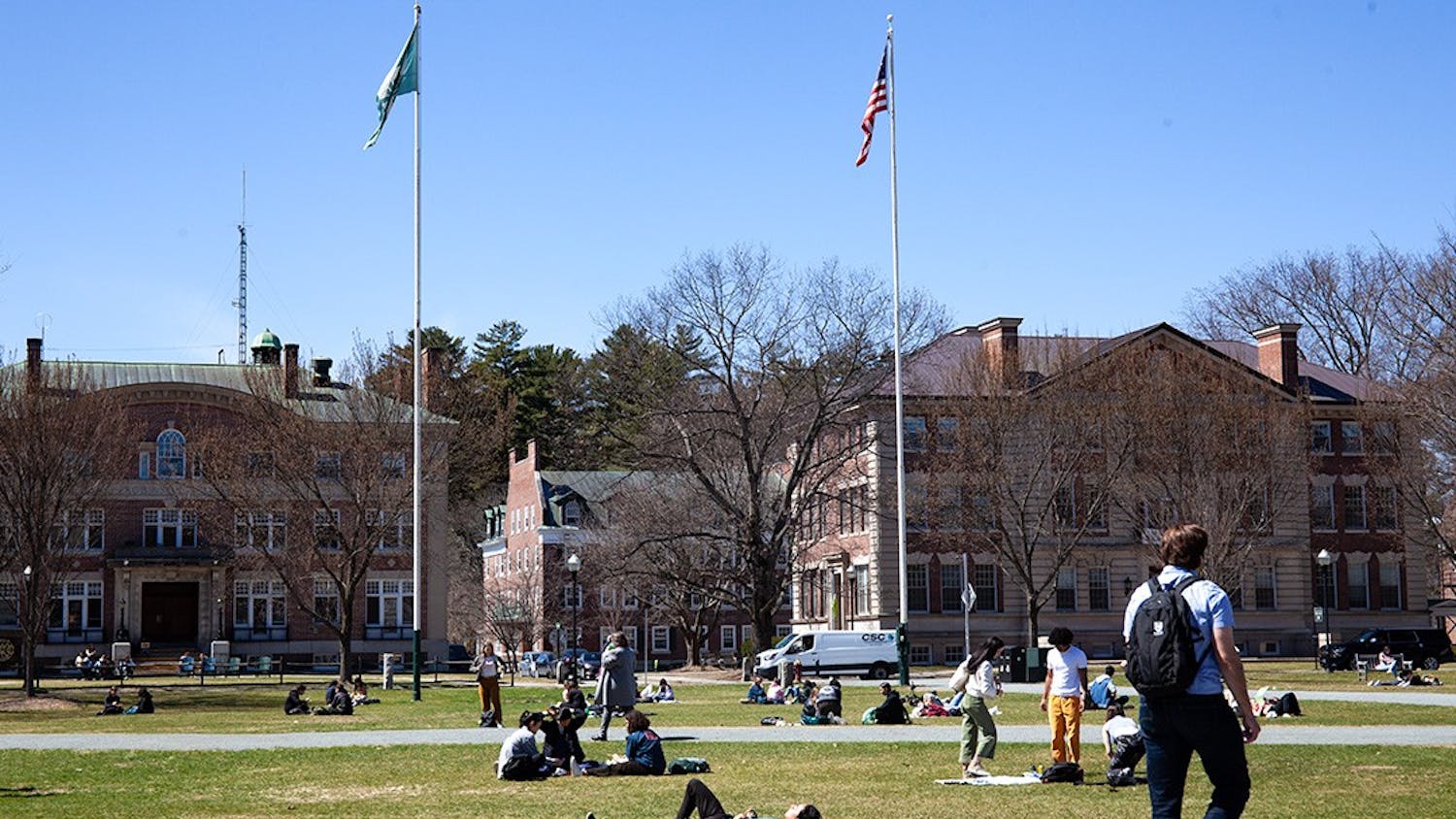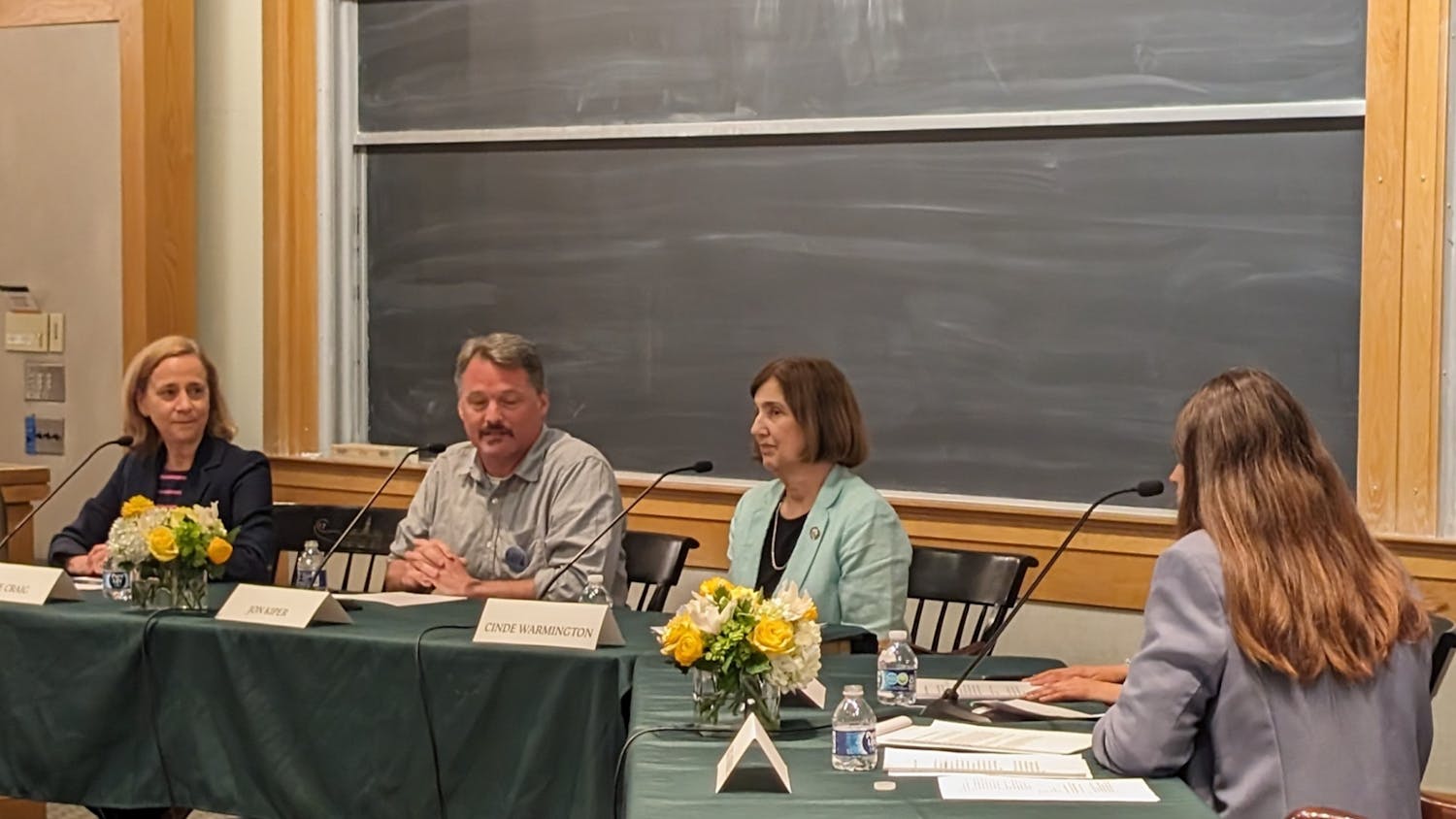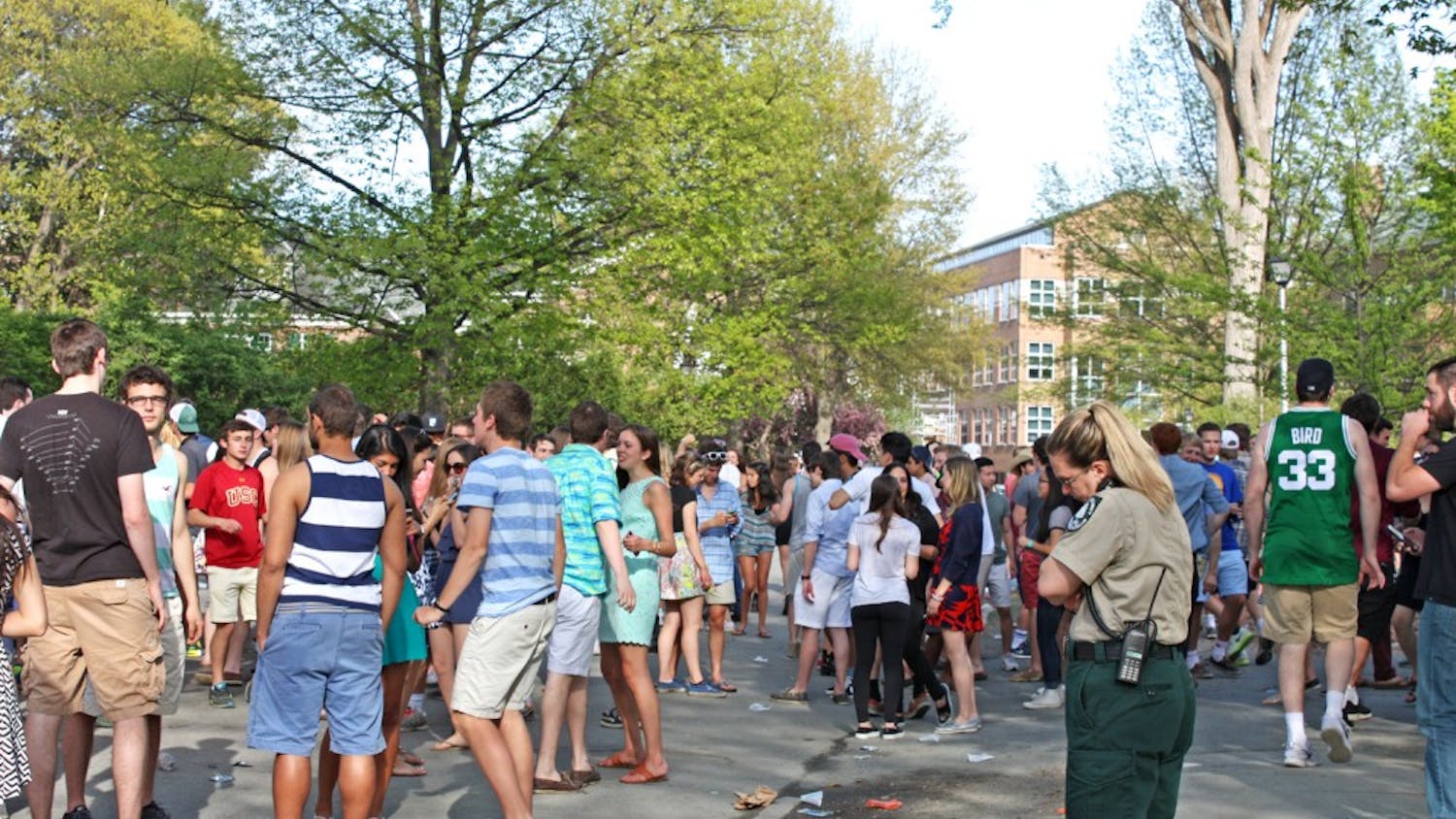Criticizing the government's current focus on war as a constraint on its power to deal with social issues, current presidential hopeful and former presidential candidate Rep. Dennis Kucinich, D-Ohio, spoke to a packed Hinman forum Sunday night in an event sponsored by the Rockefeller Center and the Dartmouth College Democrats. The congressman used the time to highlight his own plan for the Iraq conflict and to touch on a variety of issues ranging from universal healthcare and education to environmental policy and civil liberties.
"We're cutting money for education and healthcare, housing, all of these things are being cut, and more money is going to the military," Kucinich said. "I would move to effect a 15 percent across-the-board cut in Pentagon spending."
Kucinich's visit to New Hampshire comes on the heels of early trips to the state by a number of candidates in recent weeks, including Sen. Hillary Clinton, D-N.Y., Sen. Barack Obama, D-Ill., and Gov. Bill Richardson, D-N.M. On Monday, Rep. Duncan Hunter, R-Calif., will visit Dartmouth.
Although the New Hampshire primary will not be held until 2008, many contenders are getting a head start because of the crowded race for the nomination. Over 10 candidates from each of the two major political parties have either filed their candidacy with the Federal Election Commission or have formed presidential exploratory committees.
In light of this situation and given his failure to win the Democratic nomination in 2004, Kucinich explained that he has changed his strategy, saying he is "going to win" the New Hampshire primary.
"I started earlier and I am going to be here often, and the biggest difference already is that I have an established record of challenging the single most important issue that has moved politics in this state and across the country, and that is this war," Kucinich said. "What I have done is to establish a record that distinguishes me from all of the other candidates -- not only am I the only candidate in this race who actually voted against the authorization, but I am also the only one in this race who voted against each and every funding request [for the war]."
In resolving the Iraq conflict, the congressman outlined a detailed 12-point plan that calls first for the withdrawal of troops and contractors from Iraq, thus turning their responsibilities over to the Iraqi government. The plan also calls for the formation of an international peacekeeping force led by the United Nations, reparations to Iraqis and "an international truth and reconciliation process," among other steps.
In a media question-and-answer session held after the public discussion, Kucinich conveyed his frustration with the recent failure of a non-binding resolution in Congress, which opposes President Bush's plan to send more troops to Iraq.
"The war is binding; the resolution was not," Kucinich said. "It is easy to be against the escalation, but the underlying question is the occupation -- that is what we should be debating."
In limiting the United States' involvement in war and general military spending, Kucinich hopes to create a cabinet-level Department of Peace and parallel Peace Academy to promote peace studies, as well as research and policy in both the social and political spheres.
"We must challenge the inevitability of war," he said.
At the same time, he said that he wants to use the money garnered from reduced military spending to support universal healthcare and universal access to higher education, a proposal which met with loud applause from the audience.
"The common defense is a constitutional charge in the preamble, but so is the general welfare -- we have forgotten that part." Kucinich said. "I'm looking at redirecting the resources of America and of using the resources that we have to create new possibilities. I'm looking at creating a Works Progress Administration where the government would put money into the economy and create jobs."
Not all of those in attendance, however, were satisfied.
"I thought he was very articulate -- nice balance between talking about his political history and fielding questions from the audience," Laura Little '08 said. "I wished he would have discussed more about the educational gap, but it is a complex question."
Shaun Stewart '10, who co-organized the event with Dartmouth College Democrats outreach coordinator David Imamura '10 and Tay Stevenson '10, emphasized the importance of the forum. (Stewart is a member of The Dartmouth Staff.)
"It is important to have all of the candidates here to discuss the issues," Stewart said. "Congressman Kucinich is a well-known figure. He is a good person to have come and speak."



